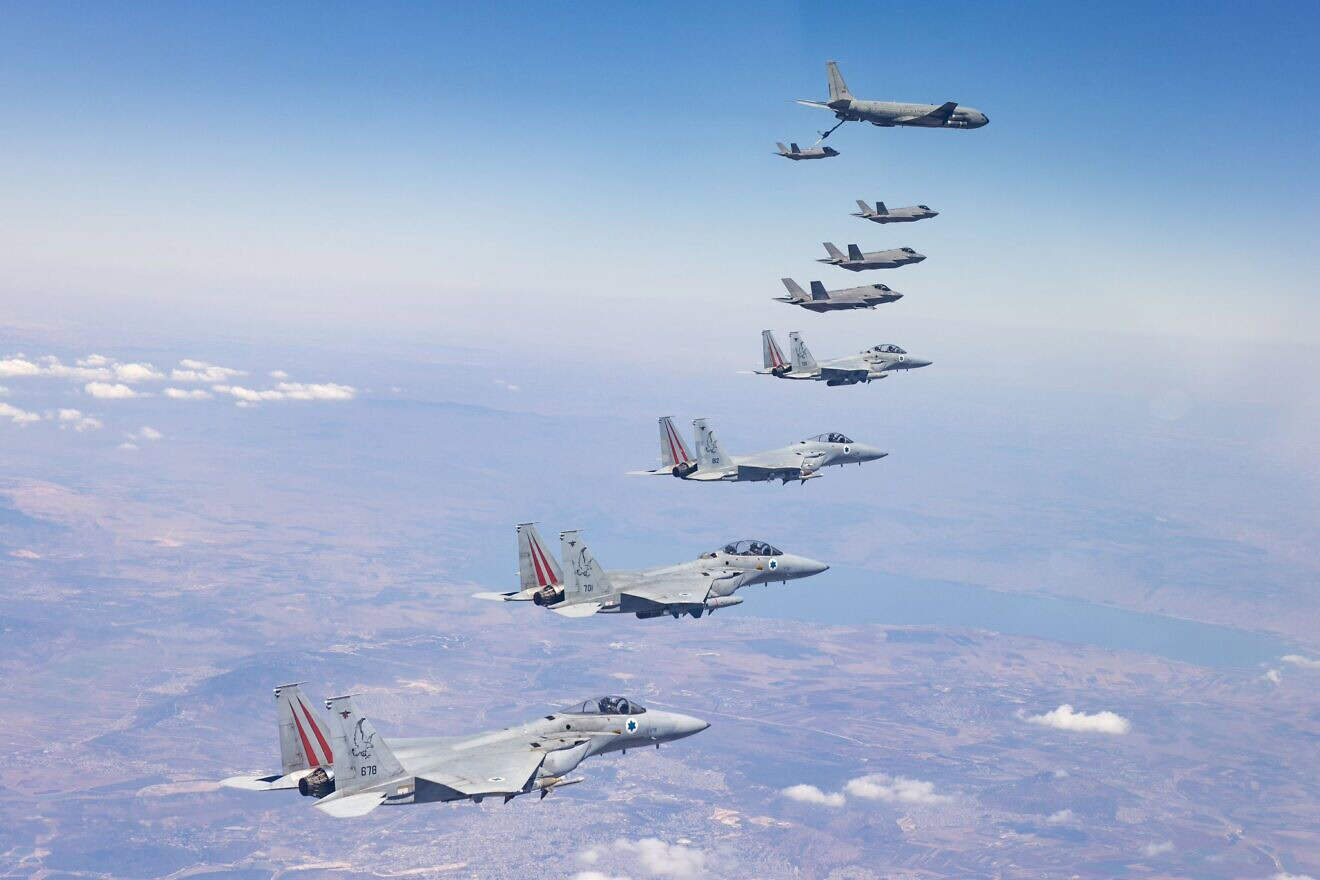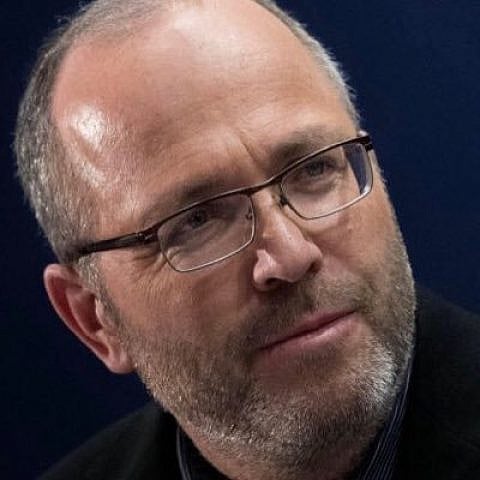
 Papież Franciszek ignoruje dżihadystyczną masakrę w kościele
Papież Franciszek ignoruje dżihadystyczną masakrę w kościele
Daniel Greenfield
Tłumaczenie: Małgorzata Koraszewska
Papież broni nielegalnych migrantów i terrorystów, ale nie chce bronić mordowanych chrześcijan.
14 lutego 2025 r. muzułmańscy terroryści porwali 70 chrześcijan w Demokratycznej Republice Konga, zabrali ich do kościoła, związali i ścięli im głowy. Muzułmańscy mordercy, którzy zrobili to, by pokazać wyższość islamu nad chrześcijaństwem, zostawili w świątyni ich zwłoki.
Papież Franciszek nie wspomniał ani słowem o tej krwawej masakrze chrześcijan w kościele. Natomiast podczas spotkania z premierem Republiki Słowackiej mówił o „poważnym kryzysie humanitarnym w Strefie Gazy”.
Fałszywy, nieistniejący głód wśród muzułmanów w Strefie Gazy miał w jakiś sposób pierwszeństwo przed masowym mordowaniem chrześcijan.
Dwa dni później nadal nie było ani słowa o masowym mordzie na chrześcijanach, ale w przesłaniu do Jubilee of Artists and the World of Culture papież Franciszek wezwał ich do modlitwy o „pokój w udręczonej Ukrainie, w Palestynie, Izraelu i na całym Bliskim Wschodzie, w Mjanmie, Sudanie i Kiwu”. Wspomnienie Kiwu, regionu w Demokratycznej Republice Konga, gdzie doszło do masakry, było informacją, że wie o tych mordach, ale nie chce o nich mówić.
Kilka tygodni później papież Franciszek wydał oświadczenie ze szpitala, w którym wezwał: „Módlmy się za męczenników z Ukrainy, Palestyny, Izraela, Libanu, Mjanmy, Sudanu i Kiwu”.
Oprócz Ukrainy i Kiwu na papieskiej liście znalazły się także kraje niechrześcijańskie, a co jeszcze bardziej wymowne, znalazły się na niej muzułmańskie ugrupowania terrorystyczne z Izraela, „Palestyny”, Libanu i Sudanu, a także komunistyczne „Ludowe Siły Obrony” w Mjanmie.
Ci chrześcijanie, którzy faktycznie zostali zamordowani za wiarę w kościele, byli na końcu i nadal nie zostali bezpośrednio wymienieni przez papieża Franciszka. Papież podobno codziennie dzwoni do Gazy, ale nie ma żadnych zapisów o takich codziennych telefonach do nękanych chrześcijan z Demokratycznej Republiki Konga.
„To ciche ludobójstwo, o którym się nie mówi. Przypomina to to, co wydarzyło się w Rwandzie w 1994 r. – powiedział anonimowy ksiądz. – To trwa od 30 lat, ale społeczność międzynarodowa milczy”. Ta cisza jest szczególnie znamienna dla Watykanu.
Papież Franciszek oskarżył Izrael o ludobójstwo, ale stwierdził: „Chcę jasno powiedzieć, że nie podoba mi się, gdy mówi się o ‘ludobójstwie chrześcijan’, na przykład na Bliskim Wschodzie”.
Nie wspominając już o Afryce.
W 2023 r. papież Franciszek odwiedził Demokratyczną Republikę Konga i obwinił za przemoc „kapitalizm” i „kolonializm ekonomiczny”. Używając pompatycznej prozy, takiej jak „trucizna chciwości pomazała jej diamenty krwią”, ostrzegł „bogate kraje”: „Ręce precz od Demokratycznej Republiki Konga! Ręce precz od Afryki!”
Franciszek zamiast głosić nauki chrześcijańskie, głosił dogmaty marksistowskie.
Problemem Demokratycznej Republiki Konga nie jest „kolonializm” i „kapitalizm”, lecz regionalne walki plemienne i religijne, a pieniądze z zewnątrz wykorzystywane do zabijania chrześcijan pochodzą z islamskich operacji prania brudnych pieniędzy „Hawala” w Iraku, Jordanii i w całym świecie muzułmańskim.
Kilka miesięcy po papieskiej wizycie islamiści stojący za ostatnią masakrą zabili maczetami 35 chrześcijańskich mieszkańców wioski. W następnym roku papież Franciszek wydał kolejne oświadczenie wzywające do pokoju i ochrony cywilów, nie wspominając o islamskich dżihadystach, którzy zabijają chrześcijan.
Kiedy papież Franciszek decyduje się na rzucanie oskarżeń, nie przebiera w słowach. Kilka dni przed masakrą w kościele w Demokratycznej Republice Konga wysłał list do amerykańskich biskupów, w którym ostro skrytykował administrację Trumpa, porównał nielegalnych imigrantów do „Ludu Izraela” i do „Jezusa, Maryi i Józefa” oraz wezwał amerykańskich katolików do obrony nielegalnych imigrantów.
Jeśli chodzi o obronę muzułmanów, papież Franciszek ma odwagę lwa. Papież fałszywie oskarżył Izrael o ludobójstwo za walkę z Hamasem w Gazie. Kiedy Izrael pokonał przywódcę Hezbollahu Hassana Nasrallaha, papież ubolewał, że „obrona zawsze musi być proporcjonalna do ataku” i że Izrael zachował się „niemoralnie” zabijając islamskiego przywódcę terrorystów.
Papież Franciszek wielokrotnie stawał w obronie muzułmańskich rebeliantów Rohingya, ale nie zwrócił uwagi na swoich współwyznawców chrześcijańskich, którzy podobnie cierpią z rąk dżihadystów w całej Afryce.
Dlaczego papież Franciszek nie może nawet wspomnieć o 70 chrześcijanach – mężczyznach, kobietach i dzieciach – zamordowanych w kościele?
Kościół był protestancki, ale z pewnością współwyznawcy chrześcijańscy, w tym zamordowane dzieci, powinni być ważniejsi od ulubionych przez papieża spraw muzułmańskich, poczynając od Nasrallaha po muzułmanów z Rohingya.
Kiedy muzułmańscy terroryści dokonują masakr w kościołach lub synagogach, lub atakują w święta chrześcijańskie lub żydowskie, robią to, aby potwierdzić przesłanie „Allahu Akbar”, że islam i jego krwawe bóstwo „Allah” są wyższe od religii i boga, którego wyznawców masakrują. Milczenie w obliczu tych islamistycznych zbrodni daje muzułmanom jedynie powód do radości.
Dlaczego papież Franciszek milczy? Z tego samego powodu, co większość naszego establishmentu.
Kiedy papież Franciszek odwiedził Demokratyczną Republikę Konga, opisał jej problemy w marksistowskich kategoriach „kolonializmu” i „kapitalizmu”. Pomimo maskowania retoryki teologią katolicką, cierpi na porażenie lewicowym światopoglądem, który uniemożliwia mu radzenie sobie ze światowymi wydarzeniami inaczej niż poprzez marksistowską analizę relacji władzy, w której strona silniejsza zawsze się myli, a strona słabsza ma zawsze rację. Świat chrześcijański jest na zawsze winny (wraz ze światem żydowskim), podczas gdy świat muzułmański składa się z niewinnych ofiar.
Ta wypaczona teologia wyzwolenia sprawia, że nawet chrześcijańskie dzieci zamordowane w afrykańskim kościele stają się ciemiężycielami, ponieważ są przedłużeniem kolonializmu świata zachodniego.
Sprowadzenie chrześcijańskiej moralności do świeckiego paradygmatu ciemiężcy/ciemiężonego skłania papieża Franciszka i innych lewicowych duchownych do wezwań do zniszczenia Europy i Ameryki na rzecz islamu. Postać „ciemiężonego” staje się święta, podczas gdy zwykły Amerykanin staje się grzesznym ciemiężcą. Dopiero gdy Zachód zostanie całkowicie zniszczony, wielki ciężar winy będzie ostatecznie usunięty.
To samobójcze credo jest zakorzenione w całej zachodniej kulturze, nie tylko w jej rozrywce i na uniwersytetach, ale także w liberalnych nurtach jej religii. Niezliczone kościoły i synagogi promują masowe samobójstwo, popierają masową migrację, modlą się za Gazę, zamiast o przetrwanie własnych parafian i krajów, które są następne na liście.
Od redakcji „Listów z naszego sadu”
Tymczasem z Syrii napływają przerażające informacje o masowych mordach chrześcijan i alawitów. Czy potwierdzą się informacje Coast Youth Forum, że w ostatnich dniach w Latakii i Tartusie zabito około 1800 osób? Syrian Network for Human Rights (SNHR) poinformowała w piątek, że od czwartku zginęło ponad 225 osób. W „Greek City Times” opublikowano wstrząsające nagrania egzekucji kobiet, dzieci i starców.
W mediach społecznościowych krąży wiele filmów pokazujących pogromy. Na jednym z filmów widać dżihadystów bezczeszczących chrześcijańskie obrazy w Tartusie. Na filmie terrorysta mówi: „Naszym bogiem jest Allah, a wy nie macie boga” i oskarża chrześcijan o bałwochwalstwo.
Papież ze szpitala dzwoni do Gazy. Pewnie ma ważne powody takich, a nie innych priorytetów.
Zawartość publikowanych artykułów i materiałów nie reprezentuje poglądów ani opinii Reunion’68,
ani też webmastera Blogu Reunion’68, chyba ze jest to wyraźnie zaznaczone.
Twoje uwagi, linki, własne artykuły lub wiadomości prześlij na adres:
webmaster@reunion68.com





